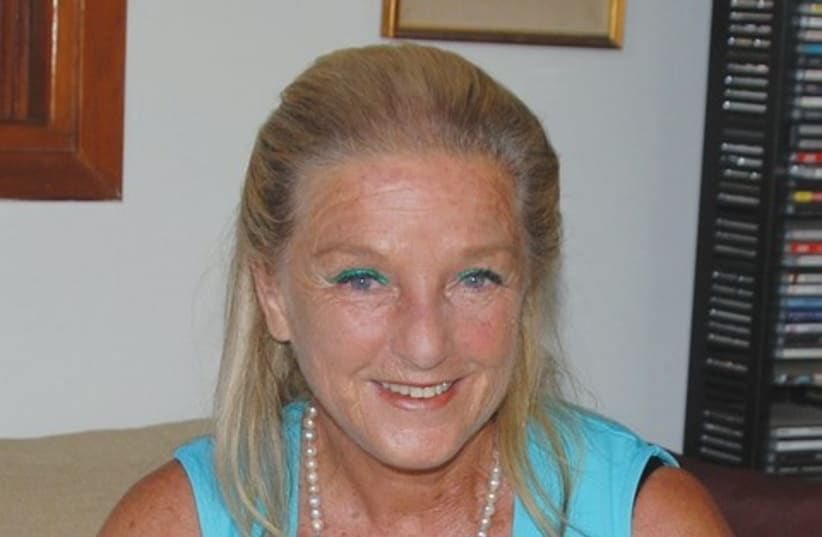From Cape Town to Ra’anana, 1964‘Over the years I’ve analyzed why I help immigrants,” says ex-South African Pat Zuckerman, who arrived here in 1964 as an 18-yearold and spends a good portion of her time in many voluntary activities for new olim and others. “Because I’ve been through it myself and I know how hard it is. For me, a happy teenager taken from the sunny comfortable milieu of Cape Town in the early 1960s to arrive in rainy, muddy Israel in mid-January, from a beautiful home to a small absorption center apartment – it all constituted a major traumatic experience.”But her father, a general practitioner in the place she still remembers as “one of the most beautiful cities in the world,” saw the writing on the wall in the South Africa of those days.“Friends were aghast when they heard that Bernie Wortreich – my dad – was leaving and going to Israel,” recalls Zuckerman. “He was the last one expected to leave. But he realized things were going sour. It was soon after the Sharpeville massacres, and riots were starting everywhere. He and my mother even began studying Hebrew, without telling us children.”Zuckerman had to abandon her studies at Cape Town University and began studying Hebrew at the Borochov Ulpan instead.“We used to walk from the apartment in Givatayim, as in the beginning we had no car,” she remembers. “Eventually my father was offered a job in the Medical Institute for Road Safety in Israel. He was the one to introduce the compulsory safety belt to Israel.”SETTLING IN With no skills but English and typing, which in those days were good to have, she went to work for Dun & Bradstreet as a statistician and picked up the skills as she went along. She later studied to be a stockbroker and stayed in that job until the first collapse of the Stock Exchange in 1973. By the end of the Six Day War she was engaged to be married.“There was something in the air in those days,” she says. “Everyone was getting married. I met my husband through a shidduch, and I thought it would be a very good idea to marry an Israeli to help me integrate.”She married Dr. Moshe Zuckerman, an eye specialist, when he was in his final year of medical studies. In 1969, their first child was born. She carried on working at the Stock Exchange until 1973 and then became a translator. One of her first assignments was to translate the writings of famous pilot Ran Ronen Pecker, which would later become his autobiography.DAILY LIFE Zuckerman’s first serious volunteering began when the Israel Tennis Center opened in 1977, helping to coordinate the hosting of players from abroad. At the same time, she was running her husband’s eye clinic as nurse, receptionist and bookkeeper. Then she became deeply involved with the founding of ESRA (English Speaking Residents Association), which began life as a small grassroots movement in 1979. Today, ESRA produces a glossy 100-page magazine of a highly professional standard, but it started out as a fourpage pamphlet that was produced and distributed by hand.“I initiated the idea of advertisements to cover the costs of printing,” she says, “and for years I went around selling ads, proofreading and doing any other necessary jobs connected to the magazine. For the last five years I’ve been composing the ESRA magazine crossword puzzle.”It was through ESRA that she began her work helping the needy.“We opened a warehouse in Herzliya and collected items for new immigrants. It began with South Africans, but we quickly began helping Russian immigrants, and I even studied Russian in order to give them a better feeling. They were very wary of us – apparently, there’s no word for ‘volunteer’ in Russian. We still have a network of helpers who collect items such as unwanted appliances and find a suitable recipient.”She has also been involved in helping collect and distribute food for the needy in the poorer areas of Tel Aviv.Another of her many extracurricular activities is being the coordinator of the program for hosting international air cadets run by the Air Force.“They’ve been coming here for the last 50 years,” she explains. “I was approached by the Herzliya Municipality, which has the job of finding families to host the girls and boys from abroad who come for three weeks. Somehow, I have to come up with 20 to 30 families every time.”Among all this activity, she still finds time to work as a freelance travel agent in an old-established agency in Tel Aviv. How did she get into that?“I travel a lot, and people used to ask me where to go and what to do. Then I was offered a part-time job, and I go in two or three times a week.”She’s also a hands-on grandmother, plays tennis four times a week and loves to cook and entertain. She also promoted the ESRA benefit show at which Ahinoam Nini performed at the Tel Aviv Performing Arts Center on October 17 and was instrumental in getting the singing star to agree.
BEST THING ABOUT ISRAEL“The weather.”
ADVICE TO NEW IMMIGRANTS“Patience. It’s not easy.”
